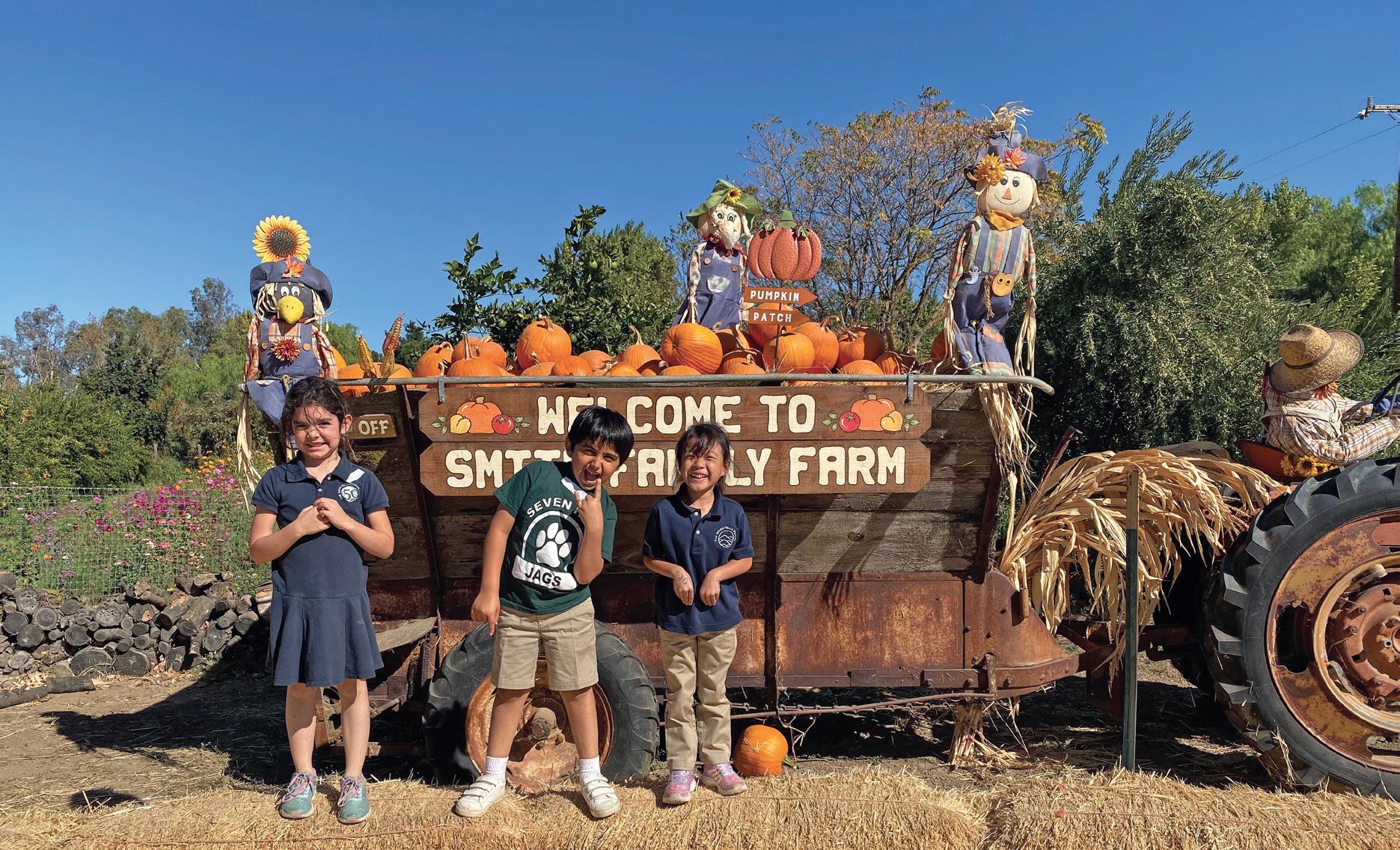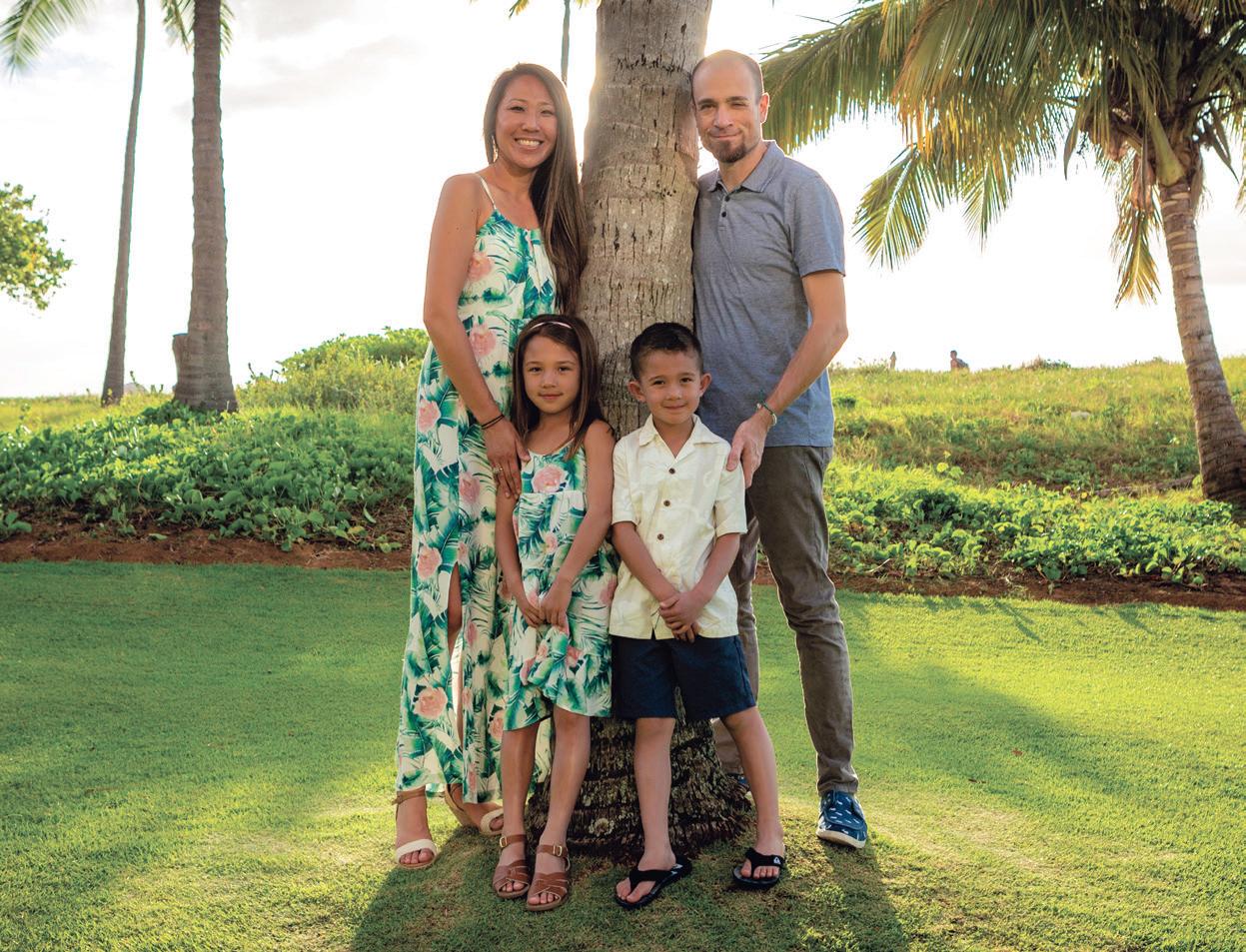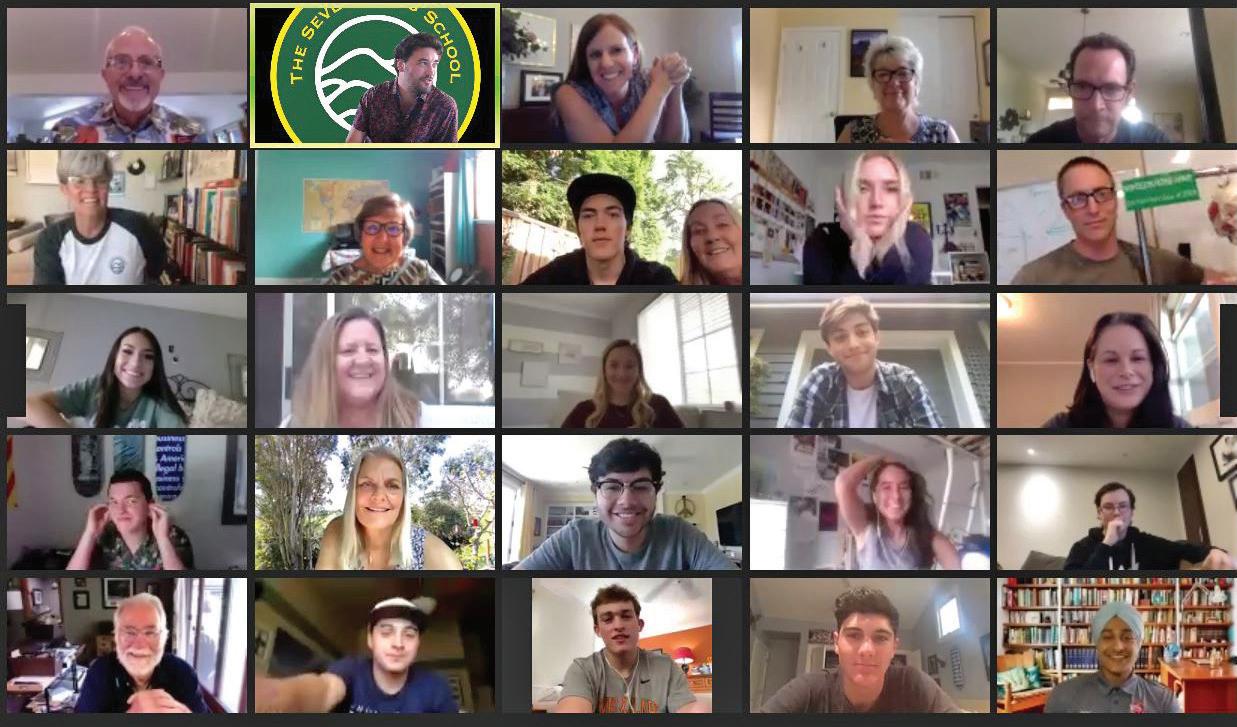
2 minute read
Focus on Students
The Joy of Writing: Writer’s Workshop at Seven Hills
School writing programs have a history of feeling formulaic, a “one size fits all” approach with an emphasis on structure, rather than individualized student voice and choice in what they want to write about. Over the past few summers, many Seven Hills faculty have honed their practice as lifelong learners at Columbia University’s Teachers College Readers and Writers Project, which has become the pedagogical framework for Seven Hills’ K-8 writing curriculum over the past four years. Informed by years of research in child development, the Readers and Writers Project’s mission is to help students become confident readers, writers, and inquirers. The goals and beliefs of the Project align with Seven Hills’ educational philosophy of building in student agency, voice, and choice, as well as fostering meaningful interactions between peers and teachers. These self-differentiating programs include a minilesson, scaffolded practice, one-to-one and small group conferring, as well as plenty of time for students to write independently. The writing curriculum focuses on three main genres: narrative, opinion, and informational writing. Students focus on the narrative genre, including “small moments,” in the early elementary grades. By 8th grade, they are creating pieces related to an essential
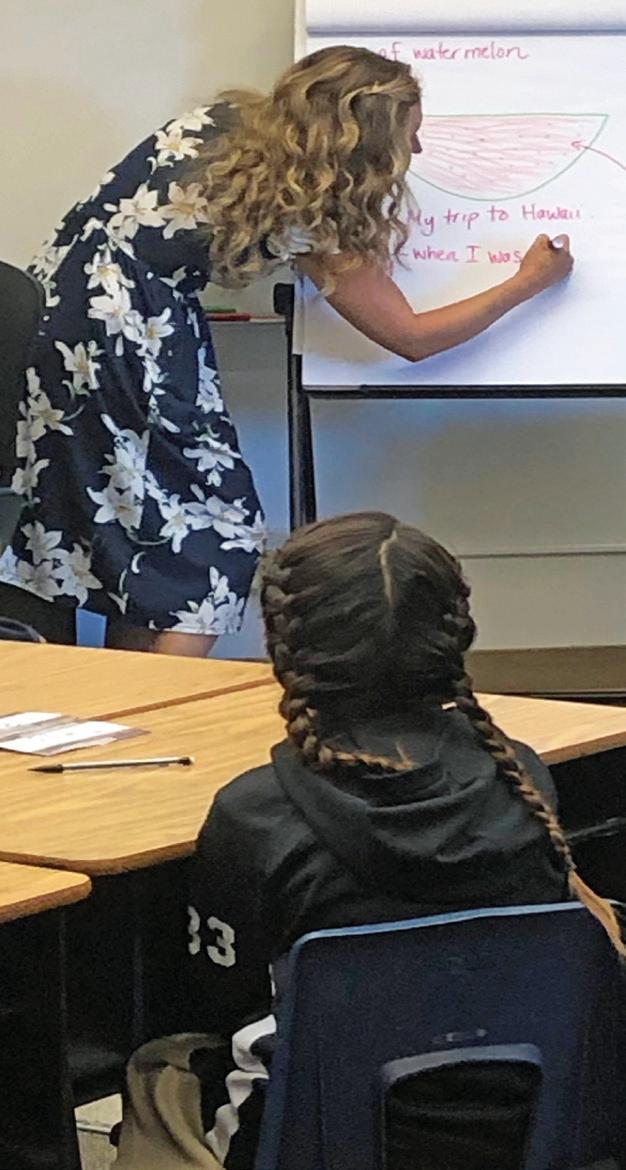
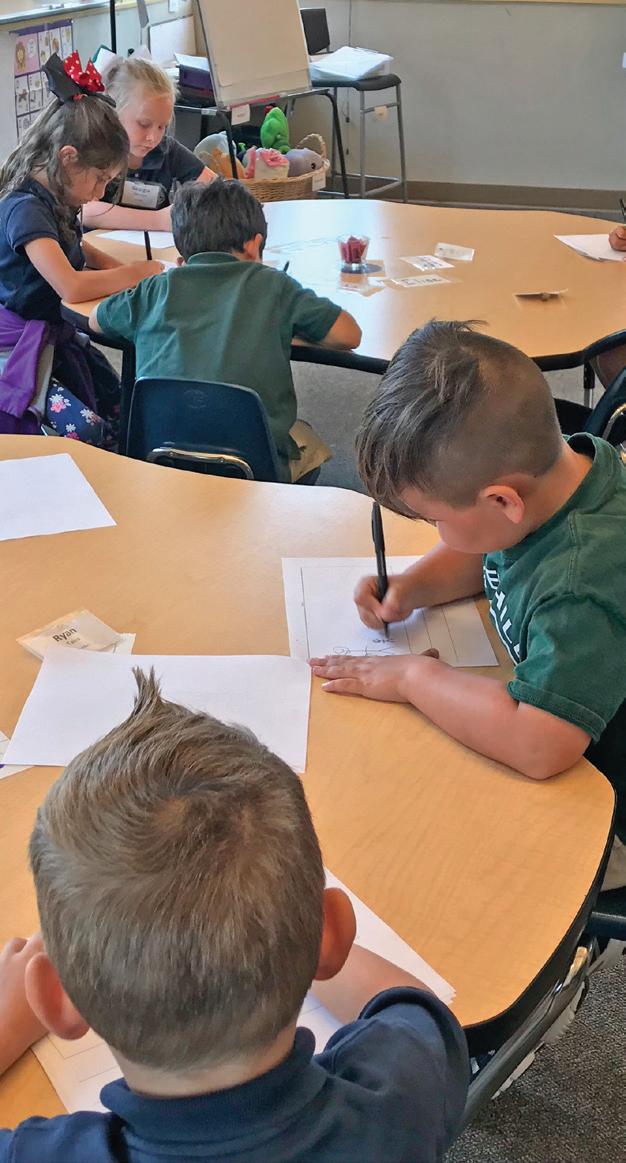
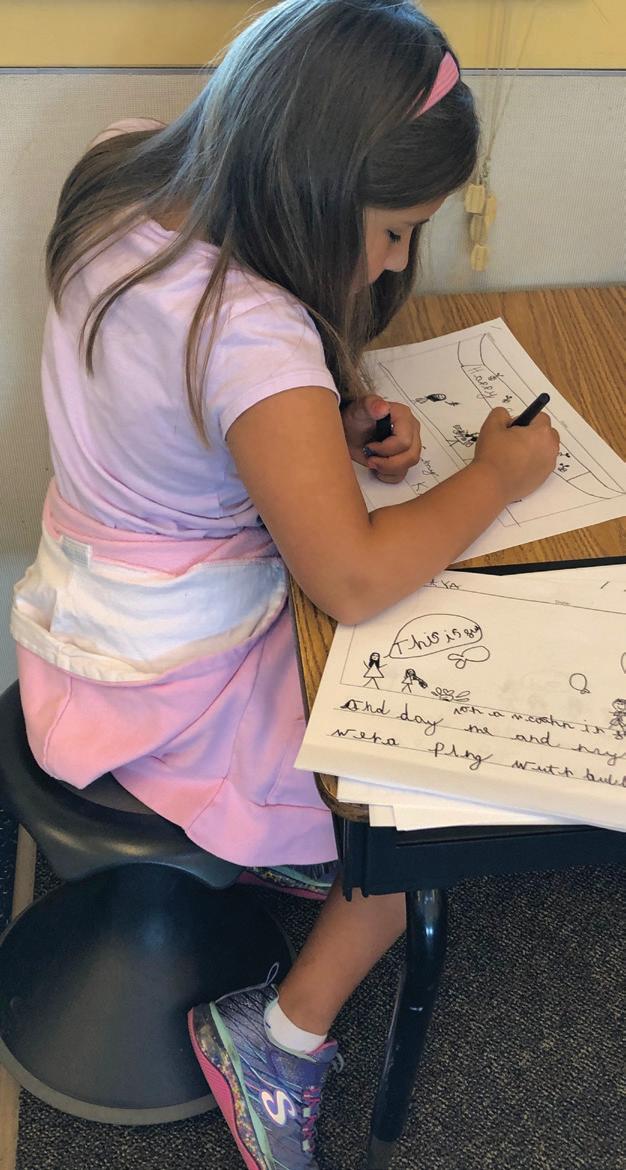
Beth Wadsworth, Learning Specialist
idea or theme, including memoirs of self-discovery and memory. Students can choose to write about what matters uniquely to them within the current genre being studied, and move through the workshop process of writing their own pieces that reflect mastery of their learning. They are encouraged to add personal elements such as small actions, internal dialogue, and external details, which help them access memory and build a compelling story. As students share their process with their writing partners or groups, they also build trust and affinity with their peers. “In Writer’s Workshop, students learn that their lives are worth writing about and that they should care deeply about what they write,” says Beth Wadsworth, who focuses on literacy in the Lower School. Since implementing this model at Seven Hills, teachers have seen more writing energy and enthusiasm from their students, who feel more invested in their work. From a Kindergartener naming their feeling to a Middle School student writing their truth, students are developing their own voice and becoming skilled, vulnerable, and passionate writers.
Schedule of a Writers Workshop
5. Sharing
Students share their work with a writing partner, and teachers honor student work.
4. Independent writing
Students use this additional time to hone their follow a systematic progression providing young writers one-on-one to do individualized coaching. These conference
craft.
3. Mid-workshop interruption
Teachers pause the writing time to clarify, highlight student work, add a
1. Mini-lesson
Teachers present a mini-lesson on structure, language development, or craft. These short 8-10-minute lessons with strategies to learn the hallmarks of the given genre.
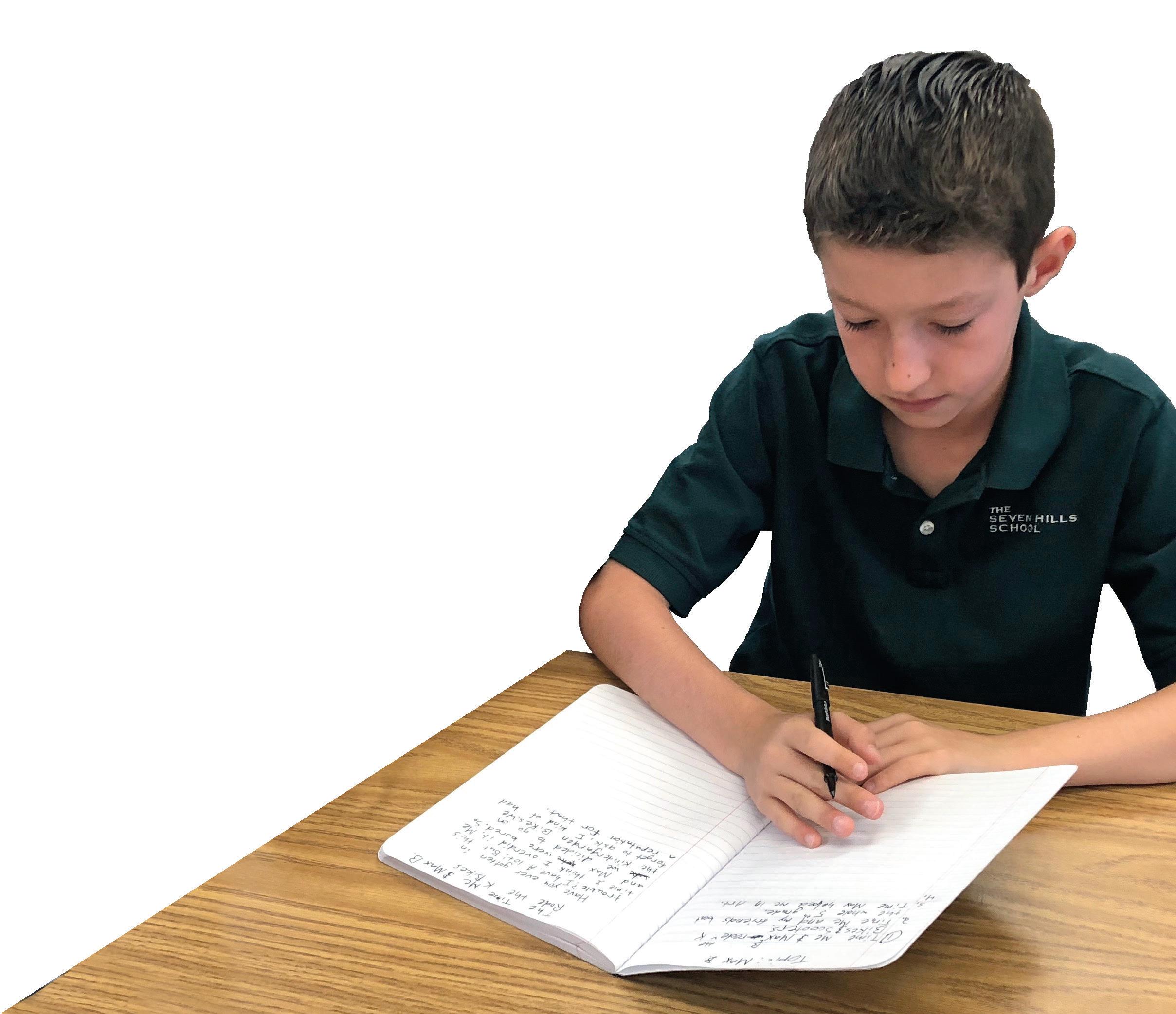
2. Independent writing
After the mini-lesson, students have long stretches of independent time to write, building their stamina as writers. As students work, teachers assemble small groups or confer teaching point, or motivate the writers.
conversations with each student focus on one aspect of the student’s writing and offer specific feedback aligned to next steps.


